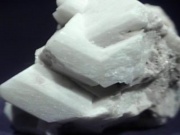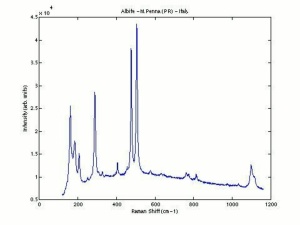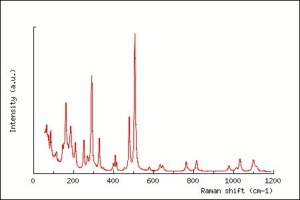Difference between revisions of "Albite"
(username removed) |
(username removed) |
||
| Line 36: | Line 36: | ||
* ''Van Nostrand's Scientific Encyclopedia'', Douglas M. Considine (ed.), Van Nostrand Reinhold, New York, 1976 | * ''Van Nostrand's Scientific Encyclopedia'', Douglas M. Considine (ed.), Van Nostrand Reinhold, New York, 1976 | ||
| − | * | + | * Random House, ''Webster's Encyclopedic Unabridged Dictionary of the English Language'', Grammercy Book, New York, 1997 |
* ''The American Heritage Dictionary'' or ''Encarta'', via Microsoft Bookshelf 98, Microsoft Corp., 1998 | * ''The American Heritage Dictionary'' or ''Encarta'', via Microsoft Bookshelf 98, Microsoft Corp., 1998 | ||
| − | * ''Encyclopedia Britannica'', http://www.britannica.com Comment: albite" | + | * ''Encyclopedia Britannica'', http://www.britannica.com Comment: albite" Encyclopædia Britannica [Accessed March 4, 2002]. |
| − | * | + | * Robert Fournier, ''Illustrated Dictionary of Practical Pottery'', Chilton Book Company, Radnor, PA, 1992 |
* Wikipedia, the free encyclopedia, at http://www.wikipedia.com Comment: http://en.wikipedia.org/wiki/Albite (Accessed Mar. 15, 2006) | * Wikipedia, the free encyclopedia, at http://www.wikipedia.com Comment: http://en.wikipedia.org/wiki/Albite (Accessed Mar. 15, 2006) | ||
Revision as of 07:48, 24 July 2013
Description
A sodium plagioclase feldspar mineral composed of sodium aluminum silicate. Albite is found throughout the world, with major locations in the Alps, Urals, Harz Mountains, France, Norway, and the U.S. (Maine, Virginia, Colorado). The mineral is translucent to opaque with a pearly luster. Although usually white, the brittle, glassy crystals that may be colorless, yellow, pink, green, or black. Albite is used in ceramics and in the manufacture of artificial teeth. It can cause unwanted bubbles in glazes at temperatures above 1200 C (Fournier 1996).
Synonyms and Related Terms
albus (Lat.); albita (Esp.); albite (Fr.; Port.); Albit (Deut.); albiet (Ned.)
Other Properties
Crystalline system = triclinic with tabular crystals, twinning is common.
Cleavage occurs at 86o24' angles
| Composition | Na[AlSi3O8] |
|---|---|
| Mohs Hardness | 6.0 |
| Density | 2.62 |
Additional Information
R. Fournier, Illustrated Dictionary of Practical Pottery, Chilton Book Co., Radnor, PA, 1996.
Authority
- Van Nostrand's Scientific Encyclopedia, Douglas M. Considine (ed.), Van Nostrand Reinhold, New York, 1976
- Random House, Webster's Encyclopedic Unabridged Dictionary of the English Language, Grammercy Book, New York, 1997
- The American Heritage Dictionary or Encarta, via Microsoft Bookshelf 98, Microsoft Corp., 1998
- Encyclopedia Britannica, http://www.britannica.com Comment: albite" Encyclopædia Britannica [Accessed March 4, 2002].
- Robert Fournier, Illustrated Dictionary of Practical Pottery, Chilton Book Company, Radnor, PA, 1992
- Wikipedia, the free encyclopedia, at http://www.wikipedia.com Comment: http://en.wikipedia.org/wiki/Albite (Accessed Mar. 15, 2006)
- CRC Handbook of Chemistry and Physics, Robert Weast (ed.), CRC Press, Boca Raton, Florida, v. 61, 1980 Comment: density=2.62-2.65


